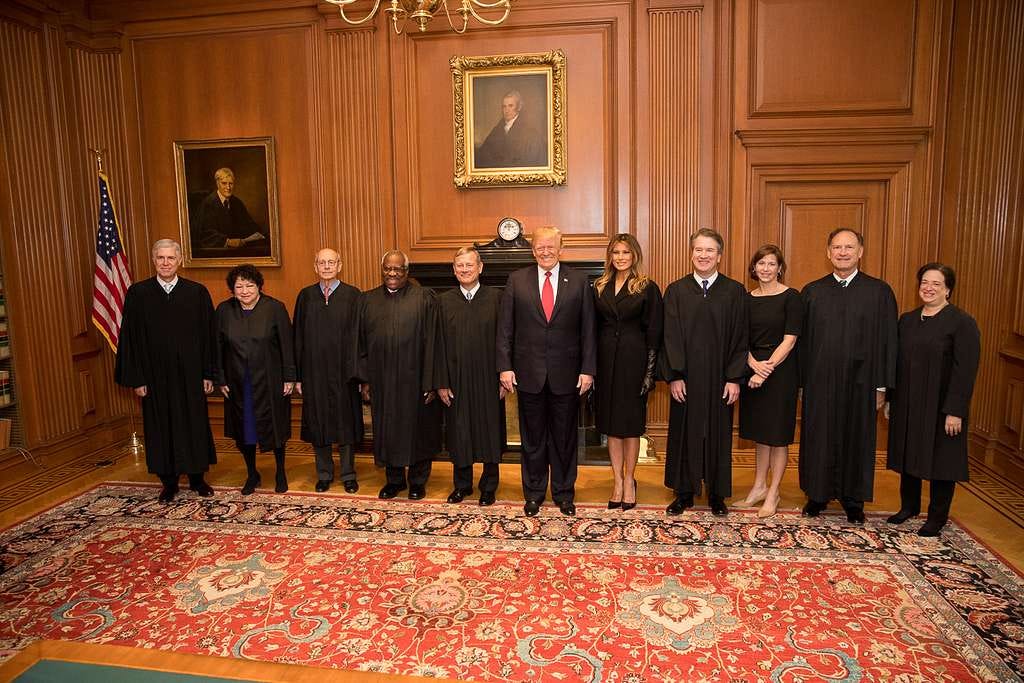There is a line of thinking, perhaps deeply rooted in the American reverence of the law, that believes that the Constitutional order will withstand Trump’s assault because that’s just what constitutions do.
This sort of argument is exemplified by a recent piece from my colleague at Harvard Law School, Noah Feldman, arguing that we’ll be fine because Trump’s actions are clearly unconstitutional or against statutory law and, as such, lawyers will sue, and judges will rule against the administration. That will be that. Of course, Trump has done a flurry of illegal actions, but Feldman believes this will be okay because the legal “whack-a-mole” will continue until Trump runs out of energy, which he believes is bound to happen sooner or later.
I hope he is right, but I fear that he is not.
The problem with relying on judges to save us is threefold:
1. Much of what Trump is doing is not against the law, yet the actions still can degrade the norms by which our system operates. Scholars of democracy recognize that it is not necessarily the letter of the law that makes things work, but the tacit norm or agreement by political actors not to do certain things. For example, there is nothing illegal about Trump demanding payment from media companies asking for his favor. Yes, it seems like it should be illegal for the President of the United States to sue the media, but it is not. A judge can’t stop Trump from doing this, and already his actions are dangerously encroaching on the freedom of the press.
As another example, Trump can’t legally just wholesale fire civil servants without cause, but he can certainly make it uncomfortable for many of them, and this can reshape the civil service to his liking very quickly. People don’t want to work in a hostile workplace, or a place they feel is without purpose. They don’t want to be an ideological minority. They may leave for attractive jobs elsewhere. When processes like this start, they tend to accelerate.
When these legal purges include civil servants at places like the Department of Justice, it can become quite dangerous for us all, not just the civil servants, because law enforcement and prosecutors can make life really uncomfortable for citizens even without convicting them of a crime. Who wants to be investigated for criticizing the President? United States Attorneys are already threatening to do so. Yes, a judge might ultimately interfere with this abuse, but your average citizen doesn’t want to face such investigations, so critical mouths may just remain shut. For the adult lives of most Americans, we haven’t worried about such things because we thought of law enforcement as apolitical. But that the Justice Department is apolitical is just a norm. That’s it. It isn’t written into law anywhere. It has survived as a norm because the people in charge kept it that way, and that norm appears to be quickly going away.
2. Unfortunately, judges are ideological creatures too. The political science on this is clear. Yes, judges are bound by precedent, but this is clearly balanced along with ideological interpretations of that precedent. Otherwise, we wouldn’t see things like forum shopping by plaintiffs and different judges ruling differently on the same case. Feldman confidently states that Trump’s assault on birthright citizenship will fail because “the high court is not going to announce a brand-new, made-up interpretation of the 14th Amendment”. But, of course, the very meaning of the 14th Amendment as we understand it today was shaped by earlier court interpretations and political battles. And to be frank, I can’t understand how anybody could look at the court’s recent decisions, including most glaringly, the new-found right of Presidents to be immune from prosecution for actions taken in office, and not think that this court is capable of a wild abandonment of our previous understanding of the constitutional order. And, of course, the President can continue to stack the judiciary in his favor with only Congress standing in his way…which leads me to my next point.
3. Congress is currently very weak, and the law can change. There is nothing in the Constitution about civil service protection. There is nothing about USAID. There is nothing about Inspector Generals. These are the creations of previous Congresses. With Republican majorities in both houses, they could change these laws. The only thing standing in their way is the Senate Filibuster, but even that could change. Right now, Republican majorities are thin enough that any legislation may be hard to pass. However, our baseline assumption should be that Members of Congress will do Trump’s bidding, so even a thin majority can legislate if bullied enough by the President. This has only become truer over time. If Trump continues to bully the press and opposition, to make life tough on his opponents, then it will become even more true. More darkly, in places like Hungry, illiberalism, much like what Trump is now practicing, preceded the eventual reforming of the constitution that entrenched further illiberalism.
As much as we may wish that the Constitution and the capable lawyers will defend us from assaults on democracy, this is simply not enough. I admire and value the lawyers on the frontline of this test of our democracy, but we can’t turn things over to them and assume everything will be okay. Our civil society (and elected officials) is a crucial actor in this fight, and if we don’t do our part, it might not ultimately matter what the lawyers or judges have to say.


